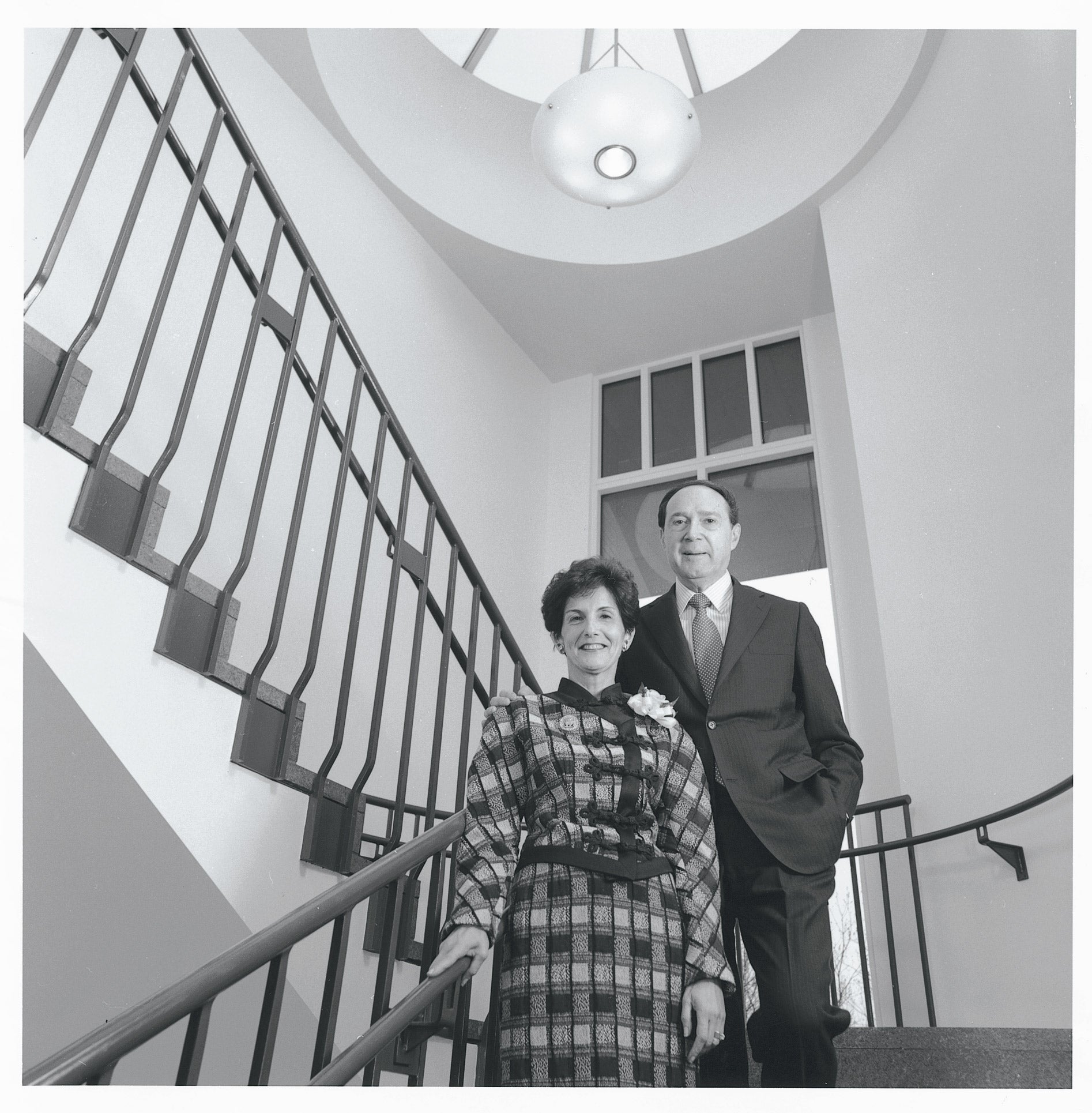Gustave M. Hauser ’53 met his future wife, Rita E. Hauser ’58, at HLS when he was a teaching fellow and she a 1L. Since then, they’ve been among the school’s strongest supporters, building on their accomplished careers in business, law and public service. Today they serve as members of the executive committee of the HLS Dean’s Advisory Board.
Gifts to law schools have been among your largest philanthropic initiatives. What’s the reason for that?
Rita: We were formed and framed by our legal training, and we feel that many leaders of the world, whether in public or private endeavors, have benefited from good legal backgrounds. We wanted very much to enhance that in a global framework.
Gus: I recall something Bob Clark said at the reunion we just attended. He explained his own respect for the law because, he said, without the rule of law, there’s literally no civilization. And I would add that there’s no democracy. You can have voting, but if there’s no rule of law, it’s meaningless.
Dean Clark has said that the law school is at an important point in its history. What do you think the school needs to do to remain a leader?
Gus: I think his Strategic Plan has already addressed that magnificently. The plan addresses just about every issue and has already led to downsizing the 1L classroom size.
Rita: We all put in a stupendous amount of work on it. The Dean’s Advisory Board was actively involved in the whole process.
What do you think the advisory board’s role is in terms of making additional changes happen at HLS?
Gus: No private school can exist or go forward without a philanthropic underpinning, and the advisory board is there to assure that underpinning. Equally important, it brings to the attention of the school and the faculty, the opinion of the outside world and, particularly, the practicing bar.
Rita: Due to the close relationship that Bob Clark formed with the advisory board, I think we were truly his advisers. None of us hesitated to tell him what we thought. And he called upon us to give him advice and challenge his initial ideas.
As the benefactors of Hauser Hall, what do you think about the possibility of the law school’s moving to Allston?
Rita: One possibility that has been discussed, which I like in concept, is that the professional schools would be clustered there around an exciting new urban space equivalent to Harvard Square. As far as Hauser Hall is concerned, if the law school were to move, we would expect to be very helpful and cooperative in resolving any naming issues which might be involved.
Gus: It’s not just who moves to Allston, but also who moves into the space that’s vacated. And it’s a question of cost and how you raise the required funding. No one should forget that this would be a very expensive process. There are certain uses of Allston that are easier to fund than others.
Any reflections on that first encounter at HLS?
Gus: Love at first sight.
Rita: Yes, he often reminds me of that.
